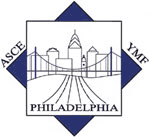 |
|
|
Preparing for the Exam |
|
|
|
"Study
a lot. I started studying everyday after work beginning 3 months prior
to the exam. The two weeks before the exam date, I took a practice exam
to determine what I still needed to spend some time looking at. The
last week I didn't study very much at all; I let myself relax as much
as possible and made sure not to work too much overtime. The best advice
I can give you is to study a lot; it's better to study too much the
first time than not studying enough and having to take it a second time.
One more thing: check the approved calculator list, buy the calculator
early (or borrow one from a friend) and use it during all your test
preparations; don't try using a new calculator the day of the exam." “NCEES, the company who proctors the exam, sells short sample exams for about $30. They are available at www.ppi2pass.com.” “Check for errata for your reference manual. The book should provide a website, which has corrections.” “Review the Highway Capacity Manual (HCM). If you are not familiar with the HCM, It really isn’t a complicated book, and there are example problems in each section to help you understand it. Be aware of all the chapters. Questions have been asked on Level of Service for a sidewalk (Chapter 13).” “Flip through and tab any reference books you bring beforehand. If you crack it open for the first time in 5 years during the test, it will be useless.” “I found that I had brought too many books. There isn’t a lot of room to set up all your reference material. It’s a personal thing, but I probably used less than 50% of the books I brought. There’s simply not enough time. In the morning, the CERM is what you mostly need and in the afternoon, you are NOT going to have enough time to search through books. Only bring books that you are very familiar with. And bring something to set up books on your desk like a crate.” “A review course, i.e. Drexel Review Course was good to give you a general overview of topics.” “ASCE has a PE Preparation Course that is available on CD Rom. It’s expensive ($500 for members), but maybe your company can afford it if it is shared by others in your office.” “I would suggest to individuals taking the structural afternoon portion to review masonry and timber design.” “Loose sheets are not allowed. Make sure all of your references are bound or in binders.” “Bring one or two milk crates. You can use them to keep your reference books on the table (and directly in front of you).” Organization “Only bring text books with indexes or those you have tabbed. In the afternoon, you will not have enough time to skim a book.” “I tabbed out the Civil Engineering Review Manual and sample tests. I had small tabs all over the books but in a very organized fashion. It really helped to go right to different topics and problems. I could literally find just about any topic in a few seconds.” “I took two days off before the exam. One day to get the last bit of studying done. The other day to relax, go through my checklist of things to bring, pack, and again RELAX.” “I didn’t study the couple days before the exam. But I did go to work the day before the exam; otherwise, I would have gone crazy thinking about the exam. By going to work, I stayed occupied. No time to panic or over think.” “Take the time before the test to reassemble the sample problems you have gathered into some type of order. Group the same subject together. Set-up 3 ring binders for different topics and labeled them for quick reference during the test. This will eliminate having to search through your references.” Getting
to the Exam “If you’re not familiar with the area where the exam is, take a ride before the exam date to make sure you can find it. Fort Washington Expo Center may be confusing to get to if you are not familiar with the area.” Applying
for the Exam
|
|
|
Copyright
© 2011 Philadelphia ASCE YMF Last modified: January 31, 2011 |

